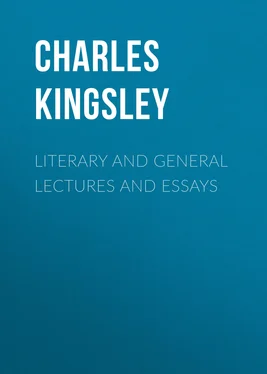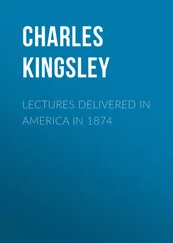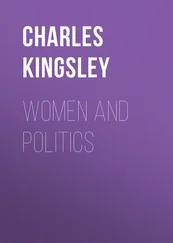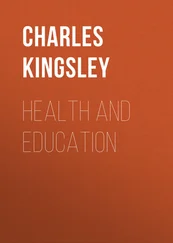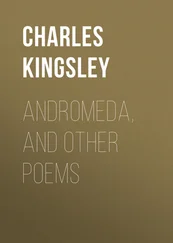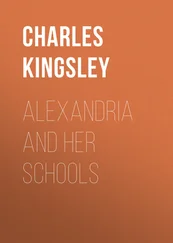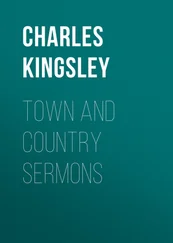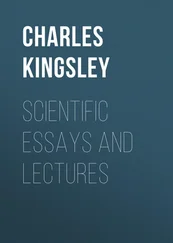Charles Kingsley - Literary and General Lectures and Essays
Здесь есть возможность читать онлайн «Charles Kingsley - Literary and General Lectures and Essays» — ознакомительный отрывок электронной книги совершенно бесплатно, а после прочтения отрывка купить полную версию. В некоторых случаях можно слушать аудио, скачать через торрент в формате fb2 и присутствует краткое содержание. Жанр: foreign_antique, Старинная литература, foreign_edu, на английском языке. Описание произведения, (предисловие) а так же отзывы посетителей доступны на портале библиотеки ЛибКат.
- Название:Literary and General Lectures and Essays
- Автор:
- Жанр:
- Год:неизвестен
- ISBN:нет данных
- Рейтинг книги:3 / 5. Голосов: 1
-
Избранное:Добавить в избранное
- Отзывы:
-
Ваша оценка:
- 60
- 1
- 2
- 3
- 4
- 5
Literary and General Lectures and Essays: краткое содержание, описание и аннотация
Предлагаем к чтению аннотацию, описание, краткое содержание или предисловие (зависит от того, что написал сам автор книги «Literary and General Lectures and Essays»). Если вы не нашли необходимую информацию о книге — напишите в комментариях, мы постараемся отыскать её.
Literary and General Lectures and Essays — читать онлайн ознакомительный отрывок
Ниже представлен текст книги, разбитый по страницам. Система сохранения места последней прочитанной страницы, позволяет с удобством читать онлайн бесплатно книгу «Literary and General Lectures and Essays», без необходимости каждый раз заново искать на чём Вы остановились. Поставьте закладку, и сможете в любой момент перейти на страницу, на которой закончили чтение.
Интервал:
Закладка:
Our answer will probably be greeted with a laugh. Nevertheless we answer simply, What our poets want is faith.
There is little or no faith nowadays. And without faith there can be no real art, for art is the outward expression of firm coherent belief. And a poetry of doubt, even a sceptical poetry, in its true sense, can never possess clear and sound form, even organic form at all. How can you put into form that thought which is by its very nature formless? How can you group words round a central idea when you do not possess a central idea? Shakespeare in his one sceptic tragedy has to desert the pure tragic form, and Hamlet remains the beau-ideal of “the poetry of doubt.” But what would a tragedy be in which the actors were all Hamlets, or rather scraps of Hamlets? A drama of Hamlet is only possible because the one sceptic is surrounded by characters who have some positive faith, who do their work for good or evil undoubtingly while he is speculating about his. And both Ophelia, and Laertes, Fortinbras, the king, yea the very grave-digger, know well enough what they want, whether Hamlet does or not. The whole play is, in fact, Shakespeare’s subtle reductio ad absurdum of that very diseased type of mind which has been for the last forty years identified with “genius”—with one difference, namely, that Shakespeare, with his usual clearness of conception, exhibits the said intellectual type pure and simple, while modern poets degrade and confuse it, and all the questions dependent on it, by mixing it up unnecessarily with all manner of moral weaknesses, and very often moral crimes.
But the poet is to have a faith nowadays of course—a “faith in nature.” This article of Wordsworth’s poetical creed is to be assumed as the only necessary one, and we are to ignore altogether the somewhat important fact that he had faith in a great deal besides nature, and to make that faith in nature his sole differentia and source of inspiration. Now we beg leave to express not merely our want of faith in this same “faith in nature,” but even our ignorance of what it means. Nature is certain phenomena, appearances. Faith in them is simply to believe that a red thing is red, and a square thing square; a sine qua non doubtless in poetry, as in carpentry, but which will produce no poetry, but only Dutch painting and gardeners’ catalogues—in a word, that lowest form of art, the merely descriptive; and into this very style the modern naturalist poets, from the times of Southey and Wordsworth, have been continually falling, and falling therefore into baldness and vulgarity. For mere description cannot represent even the outlines of a whole scene at once, as the daguerreotype does; they must describe it piecemeal. Much less can it represent that whole scene at once in all its glories of colour, glow, fragrance, life, motion. In short, it cannot give life and spirit. All merely descriptive poetry can do is to give a dead catalogue—to kill the butterfly, and then write a monograph on it. And, therefore, there comes a natural revulsion from the baldness and puerility into which Wordsworth too often fell by indulging his false theories on these matters.
But a revulsion to what? To the laws of course which underlie the phenomena. But again—to which laws? Not merely to the physical ones, else Turner’s “Chemistry” and Watson’s “Practice of Medicine” are great poems.
True, we have heard Professor Forbes’s book on Glaciers called an epic poem, and not without reason: but what gives that noble book its epic character is neither the glaciers nor the laws of them, but the discovery of those laws: the methodic, truthful, valiant, patient battle between man and nature, his final victory, his wresting from her the secret which had been locked for ages in the ice-caves of the Alps, guarded by cold and fatigue, danger and superstitious dread. For Nature will be permanently interesting to the poet, and appear to him in a truly poetic aspect, only in as far as she is connected by him with spiritual and personal beings, and becomes in his eyes either a person herself, or the dwelling and organ of persons. The shortest scrap of word-painting, as Thomson’s “Seasons” will sufficiently prove, is wearisome and dead, unless there be a living figure in the landscape, or unless, failing a living figure, the scene is deliberately described with reference to the poet or the reader, not as something in itself, but as something seen by him, and grouped and subordinated exactly as it would strike his eye and mind. But even this is insufficient. The heart of man demands more, and so arises a craving after the old nature-mythology of Greece, the old fairy legends of the Middle Age. The great poets of the Renaissance both in England and in Italy had a similar craving. But the aspect under which these ancient dreams are regarded by them is most significantly different. With Spenser and Ariosto, fairies and elves, gods and demons, are regarded in their fancied connection with man. Even in the age of Pope, when the gods and the Rosicrucian Sylphs have become alike “poetical machinery,” this is their work. But among the moderns it is as connected with Nature, and giving a soul and a personality to her, that they are most valued. The most pure utterance of this feeling is perhaps Schiller’s “Gods of Greece,” where the loss of the Olympians is distinctly deplored, because it has unpeopled, not heaven, but earth. But the same tone runs through Goethe’s classical “Walpurgis Night,” where the old human “twelve gods,” the antitypes and the friends of men, in whom our forefathers delighted, have vanished utterly, and given place to semi-physical Nereides, Tritons, Telchines, Psylli, and Seismos himself.
Keats, in his wonderful “Endymion,” contrived to unite the two aspects of Greek mythology as they never had been united before, except by Spenser in his “Garden of Adonis.” But the pantheistic notion, as he himself says in “Lamia,” was the one which lay nearest his heart; and in his “Hyperion” he begins to deal wholly with the Nature gods, and after magnificent success, leaves the poem unfinished, most probably because he had become, as his readers must, weary of its utter want of human interest. For that, after all, is what is wanted in a poetical view of Nature; and that is what the poet, in proportion to his want of dramatic faculty, must draw from himself. He must—he does in these days—colour Nature with the records of his own mind, and bestow a factitious life and interest on her by making her reflect his own joy or sorrow. If he be out of humour, she must frown; if he sigh, she must roar; if he be—what he very seldom is—tolerably comfortable, the birds have liberty to sing, and the sun to shine. But by the time that he has arrived at this stage of his development, or degradation, the poet is hardly to be called a strong man, he who is so munch the slave of his own moods that he must needs see no object save through them, is not very likely to be able to resist the awe which nature’s grandeur and inscrutability brings with it, and to say firmly, and yet reverently:
Si fractus illibatur orbis,
Impavidum ferient ruinæ.
He feels, in spite of his conceit, that nature is not going his way, or looking his looks, but going what he calls her own way, what we call God’s way. At all events, he feels that he is lying, when he represents the great universe as turned to his small set of Pan’s pipes and all the more because he feels that, conceal it as he will, those same Pan’s pipes are out of tune with each other. And so arises the habit of impersonating nature, not after the manner of Spenser (whose purity of metaphor and philosophic method, when he deals with nature, is generally even more marvellous than the richness of his fancy), as an organic whole, but in her single and accidental phenomena; and of ascribing not merely animal passions or animal enjoyment, but human discursive intellect and moral sense, to inanimate objects, and talking as if a stick or a stone were more of a man than the poet is—as indeed they very often may be.
Читать дальшеИнтервал:
Закладка:
Похожие книги на «Literary and General Lectures and Essays»
Представляем Вашему вниманию похожие книги на «Literary and General Lectures and Essays» списком для выбора. Мы отобрали схожую по названию и смыслу литературу в надежде предоставить читателям больше вариантов отыскать новые, интересные, ещё непрочитанные произведения.
Обсуждение, отзывы о книге «Literary and General Lectures and Essays» и просто собственные мнения читателей. Оставьте ваши комментарии, напишите, что Вы думаете о произведении, его смысле или главных героях. Укажите что конкретно понравилось, а что нет, и почему Вы так считаете.
